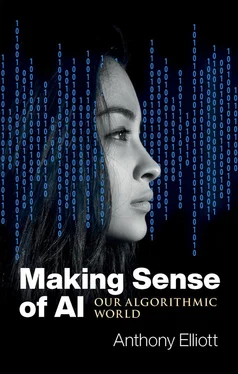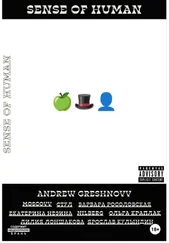Anthony Elliott - Making Sense of AI
Здесь есть возможность читать онлайн «Anthony Elliott - Making Sense of AI» — ознакомительный отрывок электронной книги совершенно бесплатно, а после прочтения отрывка купить полную версию. В некоторых случаях можно слушать аудио, скачать через торрент в формате fb2 и присутствует краткое содержание. Жанр: unrecognised, на английском языке. Описание произведения, (предисловие) а так же отзывы посетителей доступны на портале библиотеки ЛибКат.
- Название:Making Sense of AI
- Автор:
- Жанр:
- Год:неизвестен
- ISBN:нет данных
- Рейтинг книги:4 / 5. Голосов: 1
-
Избранное:Добавить в избранное
- Отзывы:
-
Ваша оценка:
Making Sense of AI: краткое содержание, описание и аннотация
Предлагаем к чтению аннотацию, описание, краткое содержание или предисловие (зависит от того, что написал сам автор книги «Making Sense of AI»). Если вы не нашли необходимую информацию о книге — напишите в комментариях, мы постараемся отыскать её.
Tracing the changing fortunes of artificial intelligence, Elliott develops a systematic account of how automated intelligent machines impact different spheres and aspects of public and private life. Among the issues discussed are the automation of workforces, surveillance capitalism, warfare and lethal autonomous weapons, the spread of racist robots and the automation of social inequalities. Elliott also considers the decisive role of AI in confronting global risks and social futures, including global pandemics such as COVID-19, and how smart algorithms are impacting the search for energy security and combating climate change.
Making Sense of AI

![Джейн Остин - Sense and Sensibility [С англо-русским словарем]](/books/26612/dzhejn-ostin-sense-and-sensibility-s-anglo-thumb.webp)










